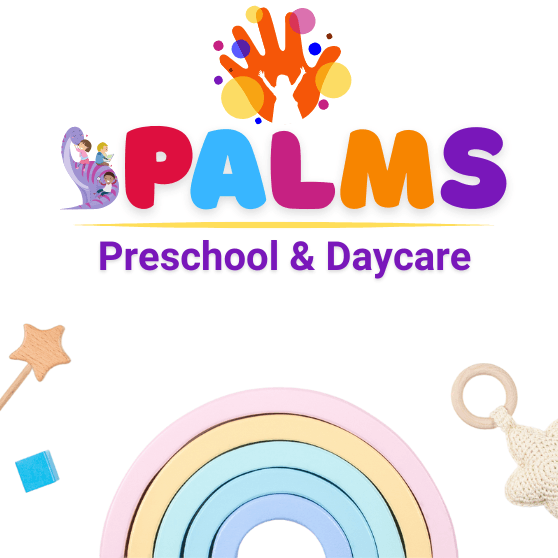



Palms Preschool Blog
The Importance of Playing
in Early Childhood
Introduction
Playing is often seen as a simple and fun activity, but it holds significant value in early childhood development. Through playing, children explore the world around them, develop critical skills, and build the foundation for lifelong learning. This post will delve into the various aspects of how play contributes to a child’s growth and why it is essential in early childhood education.
Cognitive Development
Problem-Solving Skills:
Play encourages children to think critically and solve problems. Whether it’s figuring out how to build a tall tower with blocks or deciding how to share toys, children develop essential problem-solving skills.
Imagination and Creativity:
Through imaginative play, such as pretend play or role-playing, children use their creativity to explore different scenarios and ideas, enhancing their cognitive flexibility and creativity.
Physical Development
Fine Motor Skills:
Activities like drawing, cutting with scissors, and manipulating small objects help develop fine motor skills, which are crucial for tasks like writing.
Gross Motor Skills:
Physical play, such as running, climbing, and jumping, strengthens gross motor skills, coordination, and overall physical health.
Social Development
Communication Skills:
Play often involves interacting with others, which helps children learn to communicate effectively. They practice using language to express their thoughts, negotiate roles, and resolve conflicts.
Cooperation and Teamwork:
Group play teaches children the importance of working together, taking turns, and respecting others’ perspectives, which are essential social skills.
Emotional Development
Self-Regulation:
Through play, children learn to manage their emotions and practice self-control. They experience various emotions and learn appropriate ways to express and cope with them.
Confidence and Self-Esteem:
Successfully navigating play scenarios, whether it’s solving a puzzle or making a new friend, boosts children’s confidence and self-esteem.
Language Development
Vocabulary Building:
Play introduces children to new words and concepts. Through storytelling, role-playing, and interacting with peers, they expand their vocabulary and improve their language skills.
Listening and Understanding:
Play scenarios require children to listen and understand instructions or narratives, enhancing their listening skills and comprehension.
Exploration and Discovery
Curiosity and Inquiry:
Play encourages children to explore their environment, ask questions, and seek answers. This natural curiosity is the foundation of scientific thinking and a love for learning.
Cause and Effect:
Through play, children learn about cause and effect relationships. For example, they discover what happens when they mix different colors or stack blocks in a particular way.
Incorporating Play in Preschool
Structured Play:
Incorporate structured play activities that have specific learning objectives, such as educational games and guided group activities.
Unstructured Play:
Allow time for unstructured play, where children can freely choose their activities and explore their interests without specific goals.
Outdoor Play:
Ensure ample opportunities for outdoor play, which is vital for physical development and provides a different set of challenges and experiences than indoor play.
Conclusion
Playing is a fundamental aspect of early childhood development that influences cognitive, physical, social, emotional, and language growth. It is through play that children learn about themselves and the world around them in a safe and enjoyable way. By recognizing the importance of play and incorporating it into early education, we can support children’s holistic development and set the stage for a lifelong love of learning.


Palms Preschool
& Daycare
- Small Teacher to Child Ratio
- Air-Conditioned Classrooms
- Safe & Secure Location
- Cab Facility Available
- Expert Teachers